Drone Operations
When students become comfortable with drone flight, they can then be given lessons on relevant drone rules. This can be extended to concepts such as flight safety standards, airspace classifications, and air traffic communication among several others. These lessons can then be associated with general air travel to make them easier to relate to for students.
Drones In Higher Education
Drones have become invaluable assets in higher education, revolutionising the way students learn across various fields such as journalism, engineering, and archaeology. These cutting-edge devices have opened up new avenues for professional training, providing students with real-world examples to enhance their studies. Take architecture students, for instance, who are now utilising drones to conduct façade inspections on buildings, gaining invaluable insights into structures and construction techniques. Similarly, botany, forestry, and biology students are reaping the benefits of this technology, as it allows them to explore wildlife and plants that were once out of reach.
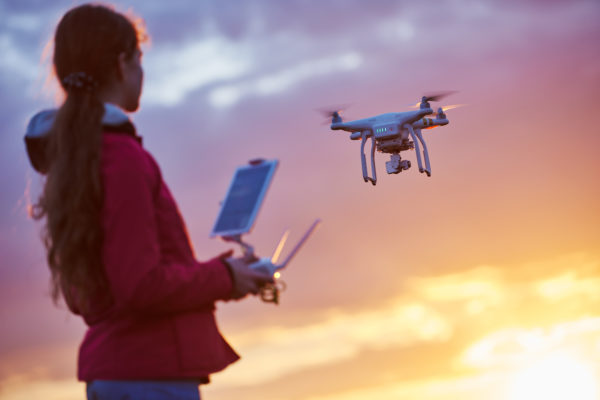

Engage Your Students with Writing Exercises
Drones in the classroom offer an exciting opportunity to engage students through creative writing exercises. Teachers challenge students to describe a drone image without knowing its origin, encouraging them to paint a vivid picture in their peers' minds. This innovative use of drones not only enhances students' descriptive skills, but also builds their vocabulary for future academic success. It promotes imaginative thinking, which is essential for young learners. By envisioning scenes from books, students can develop stronger reading comprehension skills.
Power of Drones to Nurture Essential Skills
With the rapid advancements in technology and the prevalence of online communication, it has become increasingly crucial to prioritize the development of social and emotional skills in students' educational programs. Many schools recognize the need to equip their students with essential abilities such as communication, collaboration, adaptability, and self-directed learning. Harnessing the power of drones can be a game-changer in nurturing these skills. Educators are now advocating for the integration of drones in team projects, where students work together towards common objectives. Whether it's creating intricate shapes, constructing structures, or executing coordinated actions, these projects provide a unique perspective from above, enhancing students' coordination and teamwork skills.
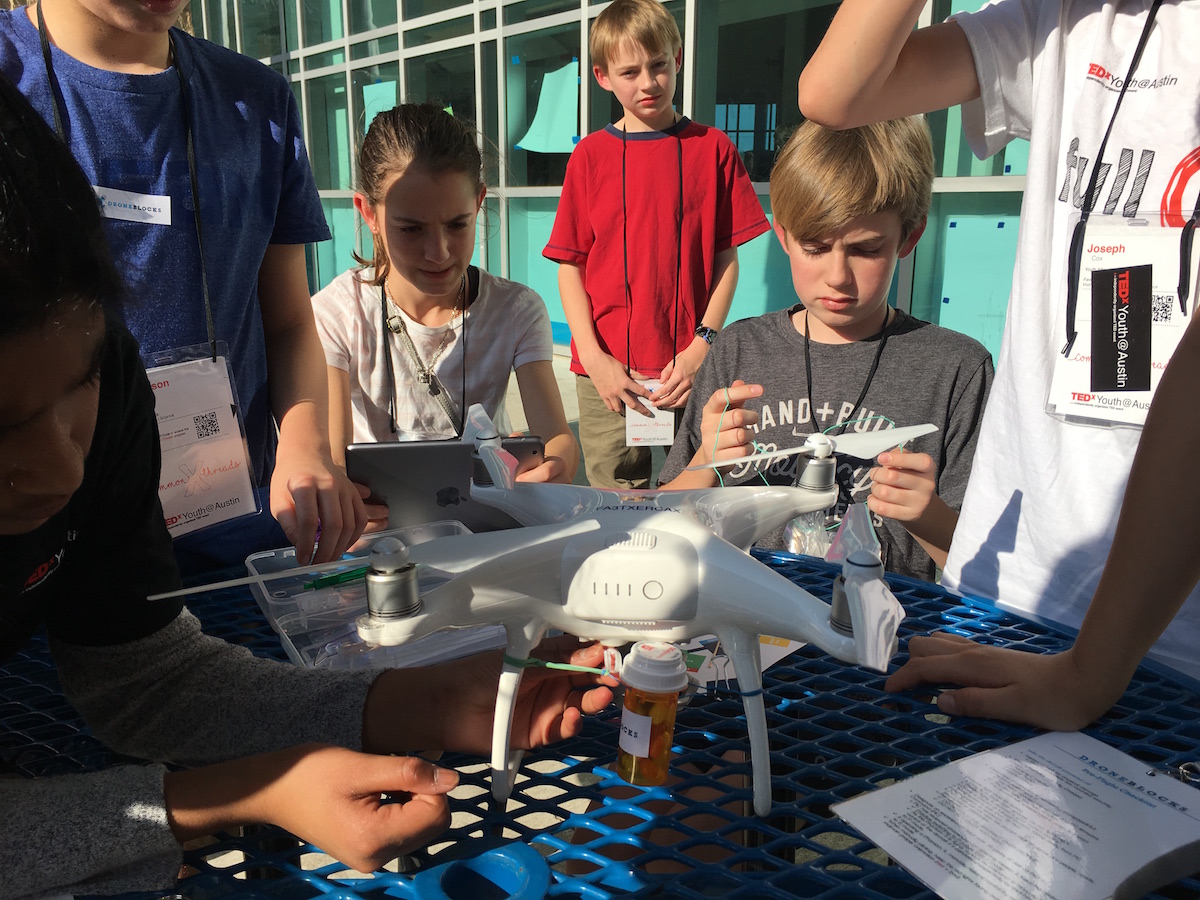

Maths Teaching Tool
Teaching mathematics to younger students can be a daunting task, but incorporating engaging tools like drones can provide a practical and real-world application of mathematical problems and equations. This not only helps students understand the immense power of this subject, but also allows them to witness the tangible results of their hard work. Schools worldwide are embracing this innovative approach, with a school in Bangkok using drones to teach students how to create and interpret graphs, calculate distances, and grasp fundamental trigonometry concepts through the exploration of various drone paths.
Physical Activities
According to a recent study conducted by the World Health Organization (WHO), a staggering 80% of children aged 11 to 17 are not getting enough physical activity. The allure of outdoor sports and playtime has been overshadowed by the rise of technology, including video games, smartphones, and interactive tablets. However, there is a creative solution to this problem – teachers can harness the power of drones to engage students in physical activity while enjoying the thrill of flying and interacting with the drone.
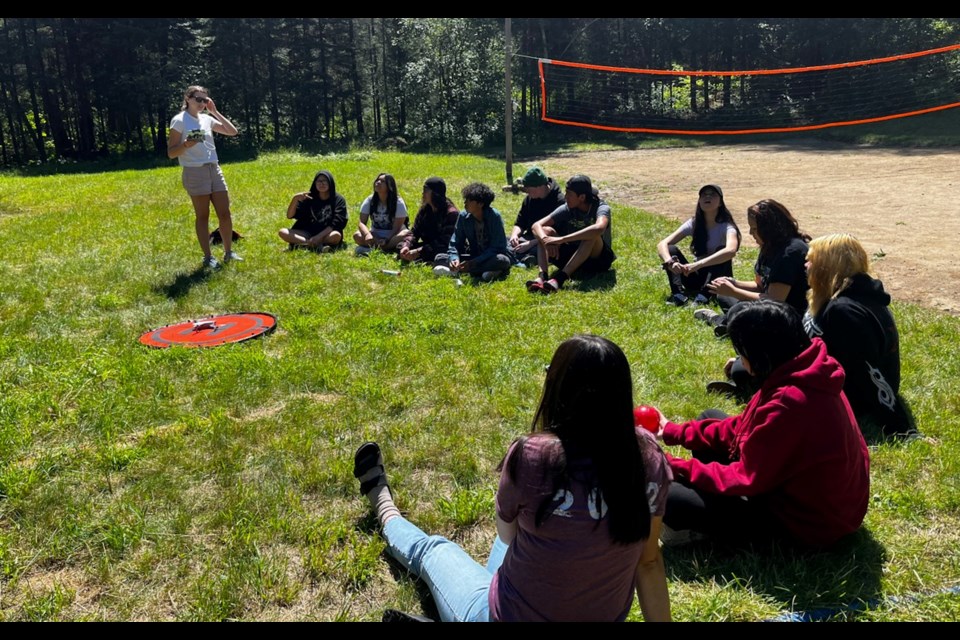

Hands-on Learning Experience
Engaging students in hands-on learning experiences is crucial for their development. Elementary school students are naturally drawn to tangible objects that they can interact with. While worksheets may not be effective for every student, using drones as educational tools can make learning more exciting and accessible. By allowing students to work directly with drones, they can explore various topics and subjects in a practical and engaging way. This hands-on approach not only enhances their understanding but also encourages them to experiment and apply what they are being taught.
Intellectual and Creative Skills
Some students thrive on the process of deconstructing and reconstructing. These habits not only enhance memory building but also cultivate the child's intellectual prowess. With technology constantly evolving, classrooms are embracing new ways to engage students. While working on simple projects is beneficial, incorporating drones takes learning to a whole new level. By dismantling and reassembling a drone, students gain valuable hands-on experience in building and problem-solving. This process fosters patience and provides a practical understanding of drone mechanics.
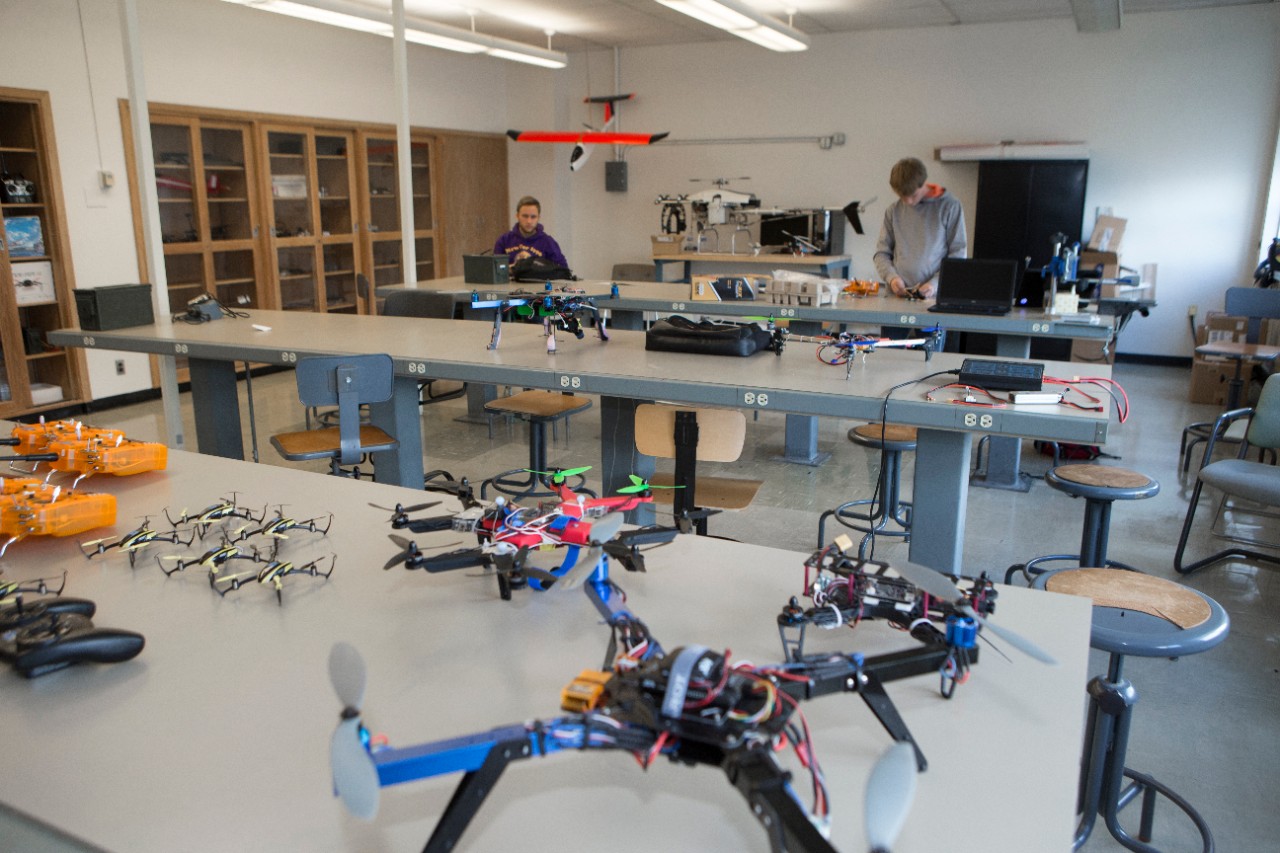

Capture the World Through Photography
Discover the world of photography and filmmaking like never before with the exhilarating opportunity to fly drones in class. While the art of photography remains timeless, the game-changing experience of mounting a camera on a drone brings a whole new level of excitement and creativity.
Drones unlock a realm of endless possibilities for photographers and filmmakers. From capturing breathtaking cityscapes and awe-inspiring natural landscapes to immersing in the vastness of open waters or capturing the beauty of sunsets, drones offer a unique perspective and an expansive field of view. Furthermore, the world of commercial drone photography opens up countless avenues for students to pave their way towards a thriving future career.
Immerse yourself in the captivating world of aerial photography and filmmaking, and unleash your creative potential with the power of drones.
Map Reading
Drones offer an exciting and innovative approach to teach students the fundamentals of map reading. By capturing aerial images, drones enable the creation of simple maps showcasing familiar locations like school grounds and surrounding neighborhoods. These maps serve as a practical tool to develop essential navigation and map reading skills.
Building on this foundation, students can delve into more advanced concepts such as diverse coordinate systems, engaging in map projects, deciphering topography maps, and understanding the intricate process of map generation. While the subject may initially appear mundane, the ability to properly interpret maps is undeniably crucial for navigating through various aspects of life.
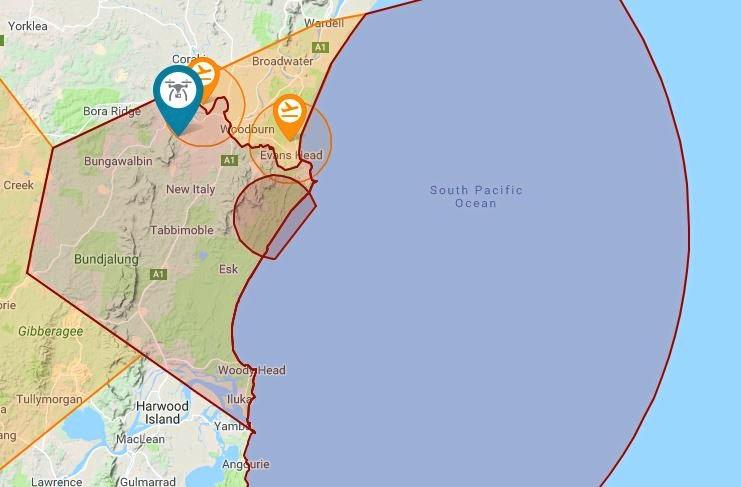

Physics - The Science of Motion
Many of us have fond memories of teachers using creative methods to demonstrate physics concepts - whether it was a balloon showcasing static electricity, a swinging pendulum illustrating conservation of energy, or a simple glass of water unveiling the wonders of surface tension. These teaching moments were unforgettable because they took seemingly mundane ideas and transformed them into captivating and engaging experiences.
Within the realm of drone technology, there is a wealth of knowledge to be discovered about lift. Students can ponder thought-provoking questions about the impact of air pressure, temperature, and elevation, all while gaining a deeper understanding of the fundamentals of physics.
Unleash the Power of Electronics
Discover the Untapped Potential of Electronics. Unleash the true power of drones, despite their initial complexity. These fascinating electronic devices can actually be assembled by anyone, with entire communities dedicated to DIY drones and customization using spare parts.
In the realm of education, drones serve as invaluable tools for teaching the fundamentals of electronics. By examining the motors, students can delve into the nuances between brushed and brushless motors, as well as grasp the significance of micro-stepping versus full-step operation in stepper signals. Additionally, the Electronic Speed Controller (ESC) of a drone offers an exceptional platform for understanding feedback systems.
Imagine the impact of teaching students the basics of electronics and allowing them to apply their knowledge by constructing their very own drones. This hands-on approach not only solidifies their understanding, but also provides a practical application of these concepts, making weeks of instruction worthwhile.
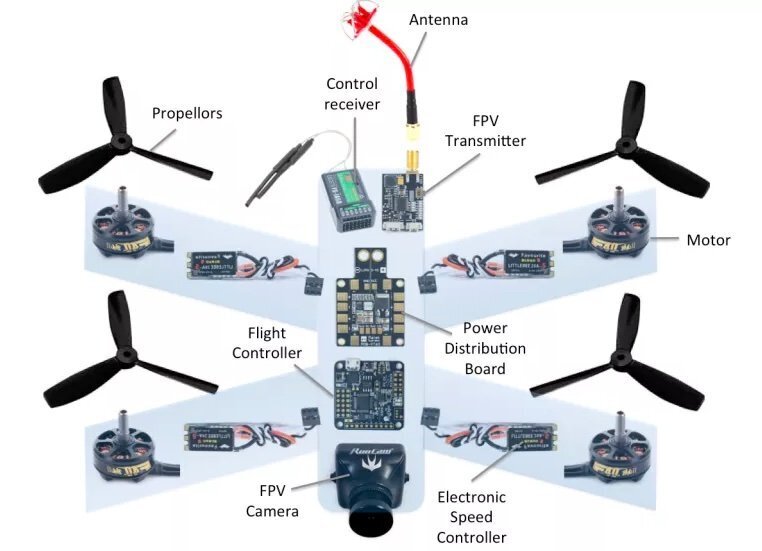

Motor Skills and Hand-Eye Coordination
Hand-eye coordination is a vital skill taught in many educational programs. While sports like netball and tennis have traditionally been the go-to for improving this skill, drones offer an exciting alternative. Navigating drones from one point to another requires intense focus, helping students develop depth perception as they judge the drone's distance in space. By providing students with diverse options to enhance their fine motor skills, drones open up new opportunities for success and personal enjoyment, whether it's practicing at home or collaborating with friends.
Empowering the World of Coding
With coding being one of the most in-demand careers, an increasing number of students are venturing into this field. However, learning how to code can be intimidating for some. That's where drones come in, offering students a hands-on learning experience that makes coding less daunting. Just like how schools have embraced robots to showcase the direct impact of code, educators are now turning to drones to inspire students to write programs that enable autonomous flights. This innovative approach not only teaches computational thinking but also empowers young learners to realize the incredible power of their coding skills.
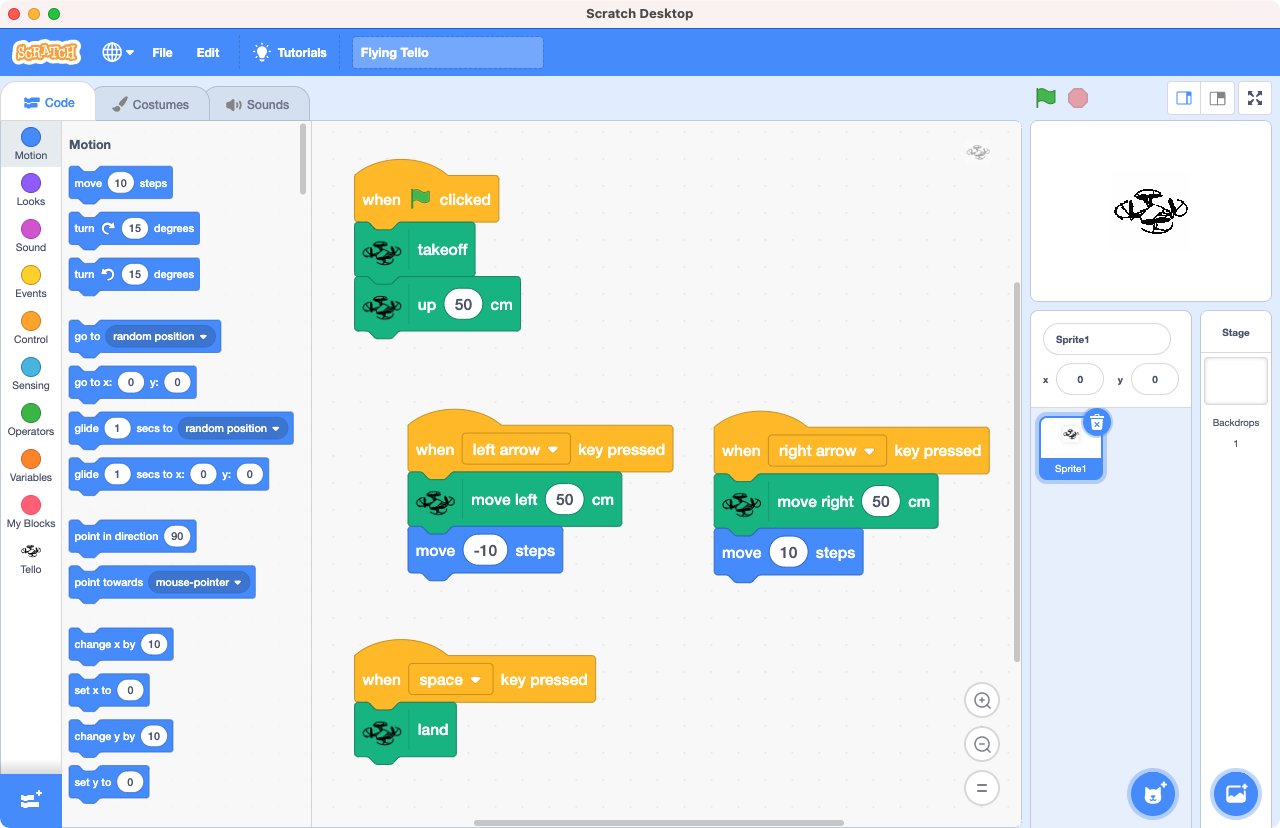
Embark on a remarkable Drone Journey guided by seasoned industry professionals.

Laurie Radcliffe
Director - Drone Operations
www.drone-operations.com.au

Danielle Lew
Support - Drone Operations
www.drone-operations.com.au

Carli Harris
Drone Pilot
www.drone-operations.com.au